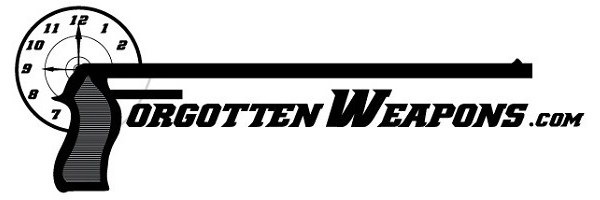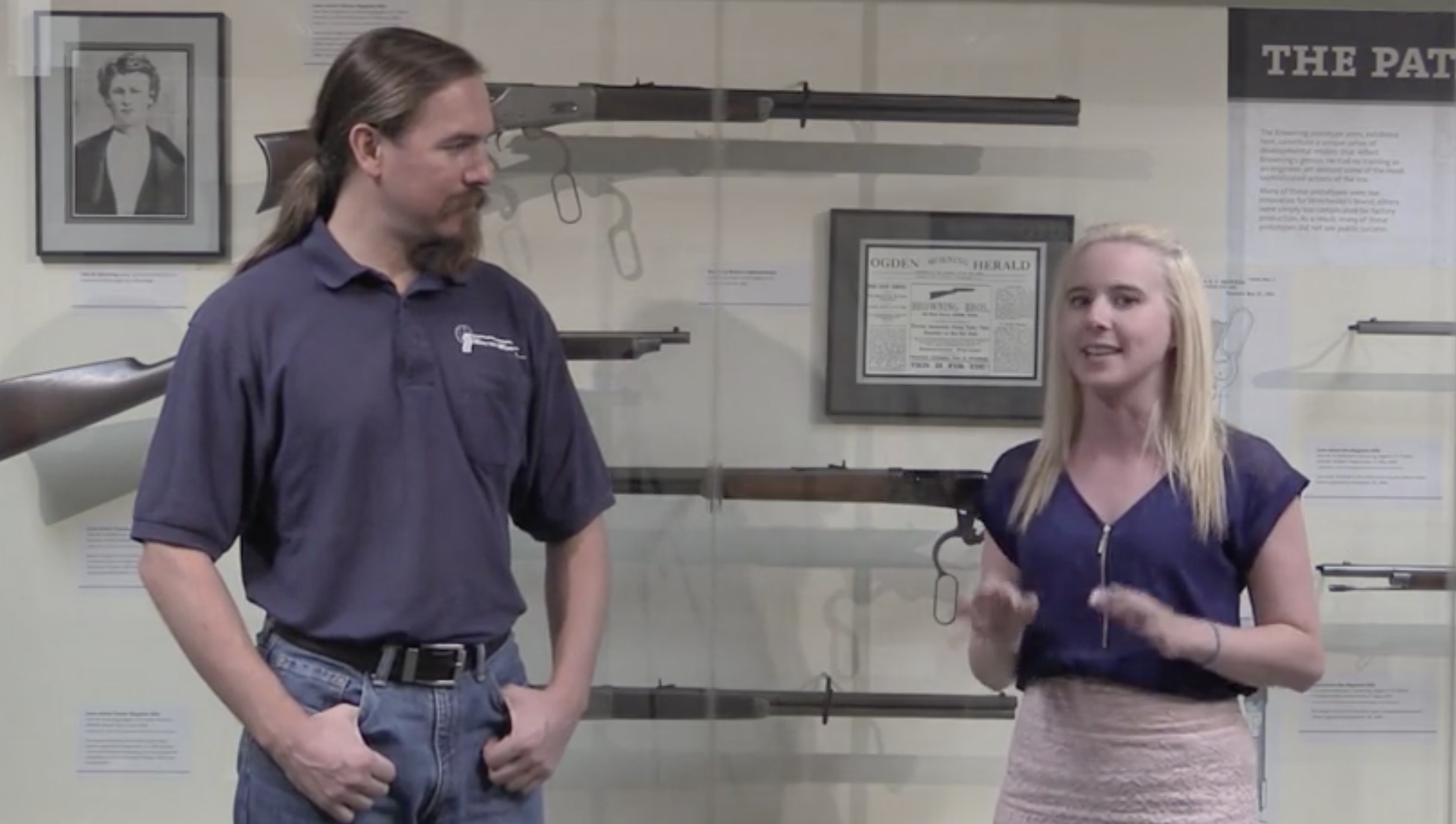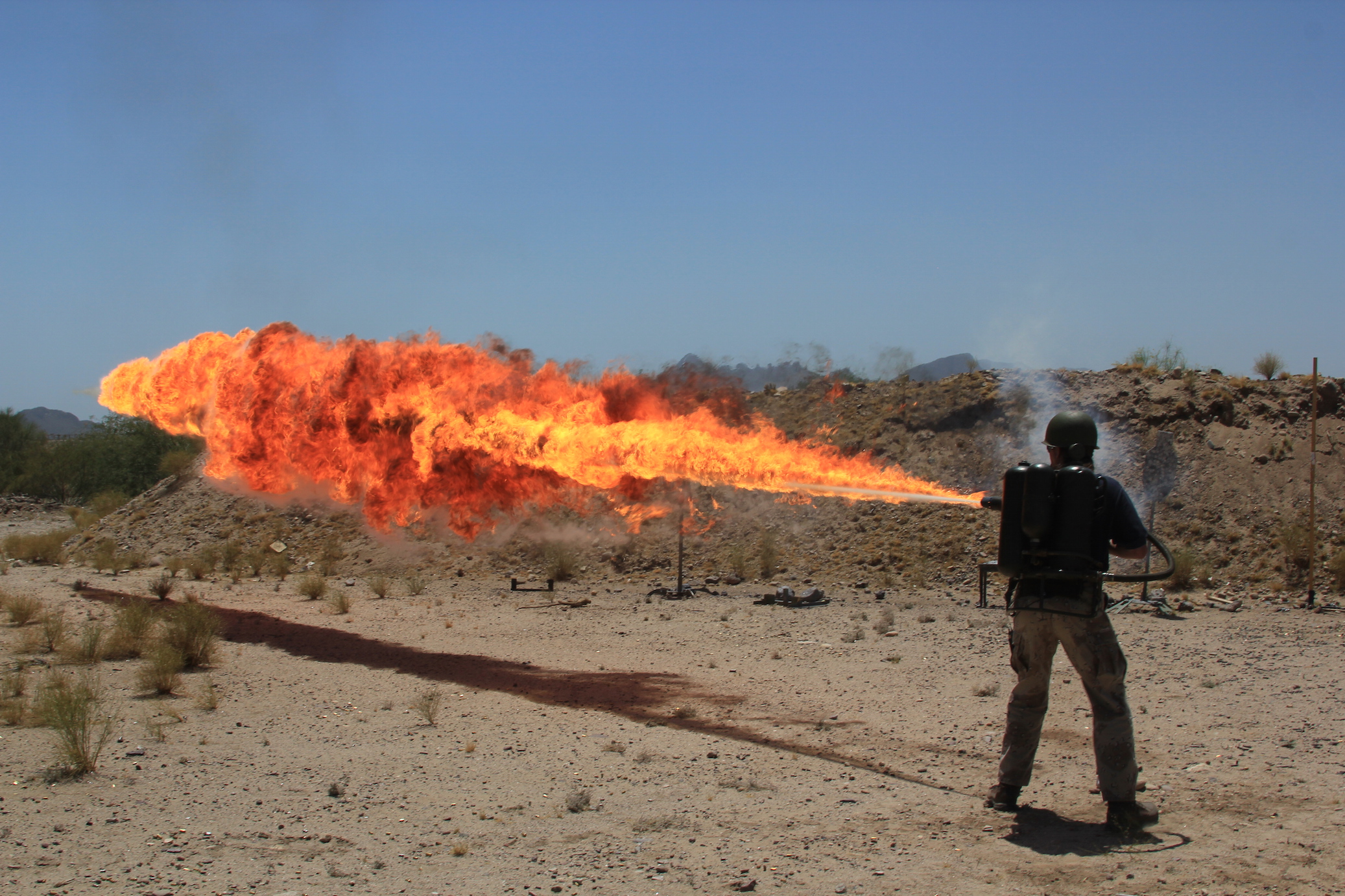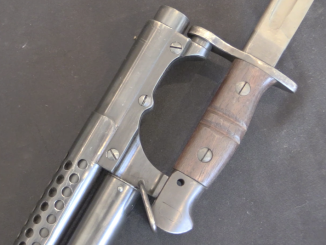During World War II, the US military had a simultaneous need to put machine guns into combat service, and also a need to train new soldiers on the operation of those machine guns. Cutting up existing guns to make demonstration models reduced the number available for field use, and the solution was to contract for the manufacture of 200% scale fully functional (except for actually firing) cutaway models of the main service weapons. This is one such example of a Browning M1919A6 model (similar models of the M1 Garand, M1 Carbine, and M1918A2 BAR were also made).
Made by the Reflectone Corporation of Connecticut, these models are actually quite remarkably well made. Every part is a proper functioning copy of the real version, including springs reduced in strength to make the parts easy to operate, but allowing them to behave as a real gun would. With a model like this, a whole class of trainees could be instructed on various tasks relating to the gun, from basic loading and firing to complex malfunction clearance and complete detail stripping. They are typically relegated to hanging (inevitably covered in dust) from the ceilings of cluttered gun shops, but they are actually quite interesting and sophisticated devices.
Oh, and note that while this appears to be an M1919A4 without stock or bipod, it was actually made with the barrel profile of an A6, and the stock and bipod left off because they are mechanically irrelevant to training.




Even reading the description text first and knowing what was coming, seeing you sitting there behind that*enormous* gun was startling. 🙂
“*enormous* gun”
In 1930 US Ordnance Department tried to create .90″ autocannon:
http://www.quarryhs.co.uk/CAL90.html
but failed to get such weapon into mass production.
There’s a picture of a very impressive vintage “technical” in the early pages of volume 1 of Chinn’s “The machine gun”
It showss a group of very smartly dressed men around an enormous gas operated automatic cannon, that is mounted on the back of a 1900s flat bed wagon.
“It showss a group of very smartly dressed men around an enormous gas operated automatic cannon, that is mounted on the back of a 1900s flat bed wagon.”
Is that this gun
http://www.ibiblio.org/hyperwar/USN/ref/MG/I/img/MG-1-121-79.jpg
?
If yes then it is 37mm McClean autocannon, such guns were bought by Tsarist Russia and used during First World War and Russian Civil War.
Gun in Russian service (1st photo from left):
https://commons.wikimedia.org/wiki/Category:37mm_McClean_automatic_cannon
Story of Samuel McClean can be found here:
http://ww2.rediscov.com/spring/VFPCGI.exe?IDCFile=/spring/DETAILS.IDC,SPECIFIC=8657,DATABASE=objects,
There is some discussion about McClean’s 37mm guns:
http://www.network54.com/Forum/330333/thread/1159556900/American+Maklen+-+Mc`Clean+37mm+AT+Gun+
including surviving examples.
That’s the technical
🙂
Some, but not all, zinc die castings of that era were prone to internal corrosion which variously lead to them swelling, cracking or crumbling.
This turned out to be due to traces of lead in some batches of zinc (their ores usually occur together).
Lead is very slightly soluble in molten zinc, but during crystallization it remains in the melted portion until the very end and ends up at grain boundaries and intersections of several grain boundaries, where its lowerphysical strength results in reduced strength for the whole body of the metal, and in the presence of moisture and chemicals in the air it’s lower chemical reactivity sets up an electric cell with the zinc, causing internal corrosion of the casting.
Once the cause of the problem was discovered, die casters went to using distilled zinc of several nines % purity.
Not all die castings, even from the same makers, suffer from this, so, without looking closely, there’s no way to know if the process is going on in the instructional model, but it is something to be aware of.
I remember large cutaway trainers in an local Army/Navy store in my youth. Which was a long time ago
You a Memphis boy per chance? The downtown army-navy store there had a 1919a4 and a BAR…perhaps one of the others as well…..and a Honest John nuclear missile (sans warhead) hanging from the ceiling down the center aisle!
Admittedly I’m an idiot, but was nobody else’s first thought “WHY IS IAN TINY? WHAT HAVE THEY DONE TO HIM? IS THIS WHAT CORROSIVE PRIMERS DO?”
My thoughts exactly, they’ve shrunk him. The rotters.
I just sold my large trainer M1919a4 much like the one you have demonstrated but with a belt of linked 15 original trainer non-firering ammo for the gun. While they are nice they take up a LOT of room. Harry
I’ve seen one at an army surplus store in new york city.
Is a 2x sized BMG cutaway considered a “firearm” or “machine gun”? Or is it considered inert/demilled/nonfunctional? Do you need an FFL to purchase one? I don’t have the money or space for one, but sure would be fun to have mounted on a tripod in the living room!!